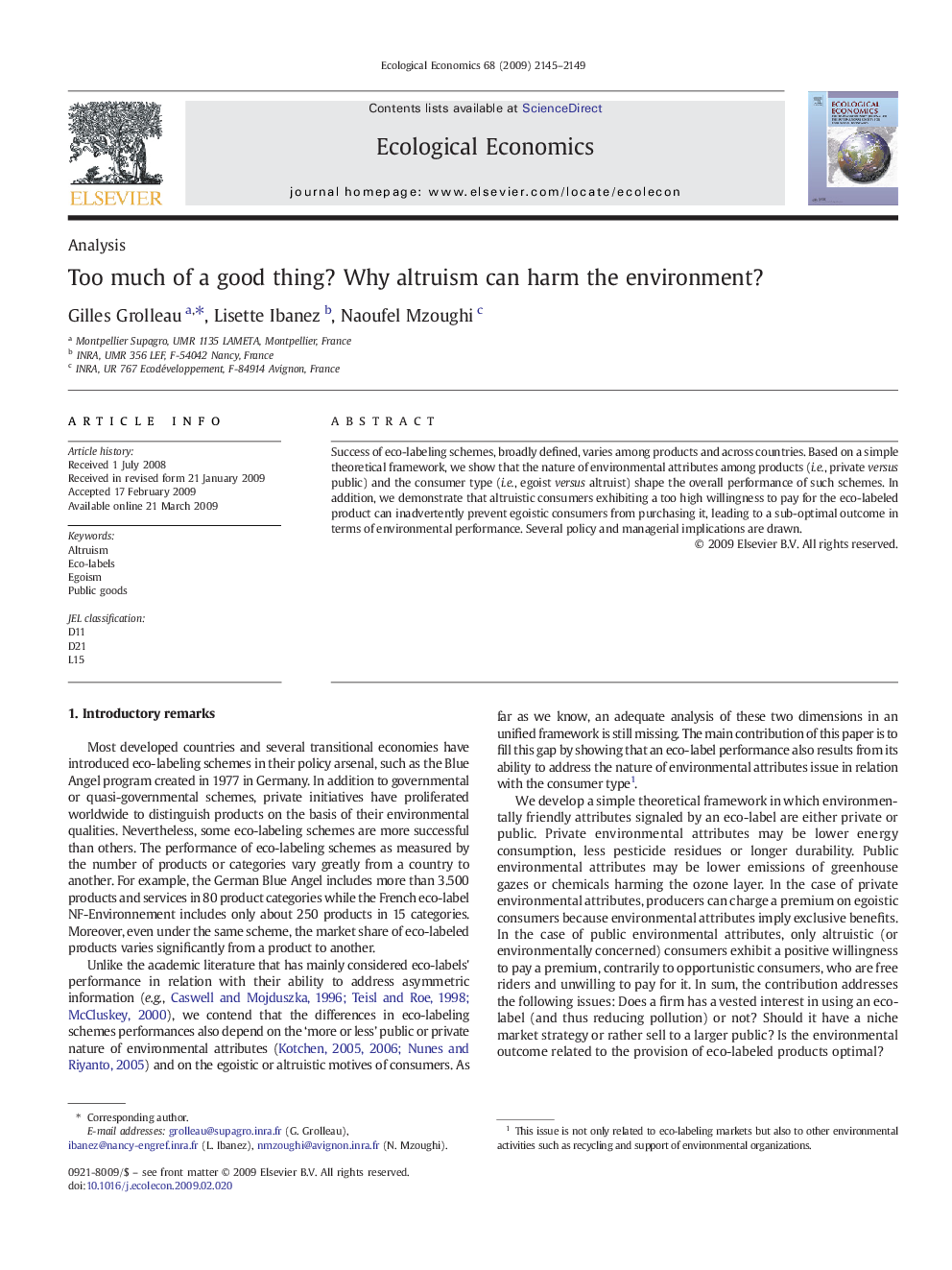| Article ID | Journal | Published Year | Pages | File Type |
|---|---|---|---|---|
| 5051331 | Ecological Economics | 2009 | 5 Pages |
Abstract
Success of eco-labeling schemes, broadly defined, varies among products and across countries. Based on a simple theoretical framework, we show that the nature of environmental attributes among products (i.e., private versus public) and the consumer type (i.e., egoist versus altruist) shape the overall performance of such schemes. In addition, we demonstrate that altruistic consumers exhibiting a too high willingness to pay for the eco-labeled product can inadvertently prevent egoistic consumers from purchasing it, leading to a sub-optimal outcome in terms of environmental performance. Several policy and managerial implications are drawn.
Related Topics
Life Sciences
Agricultural and Biological Sciences
Ecology, Evolution, Behavior and Systematics
Authors
Gilles Grolleau, Lisette Ibanez, Naoufel Mzoughi,
